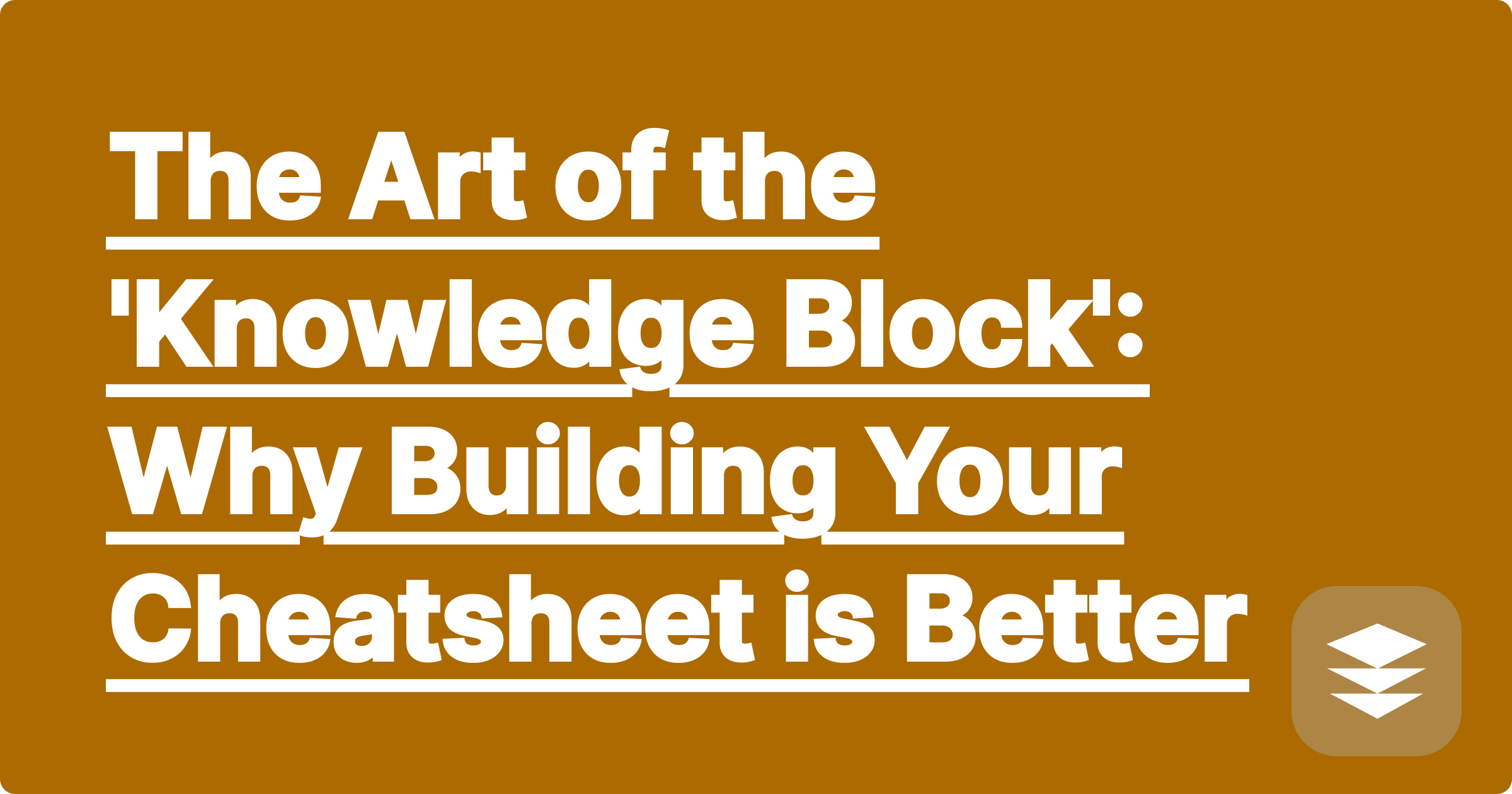
For decades, studying has been a passive activity. You download a pre-made study guide, you read a summary someone else wrote, or you use an AI tool that spits out a wall of condensed text. You are a consumer of information, hoping that by mere exposure, something will stick.
But what if this entire approach is flawed?
Real, durable learning doesn't come from passive consumption. It comes from active engagement: deconstructing information, making connections, and organizing it in a way that makes sense to you. This is the philosophy behind a new generation of study tools. Forget the static PDF. It’s time to embrace the interactive study guide.
This guide explores a powerful concept—the 'Knowledge Block'—and explains why creating a customizable cheatsheet is a fundamentally better way to study.
Standard AI summarizers are tempting. You upload a document, press a button, and get a shorter version. It feels efficient, but it's a cognitive trap.
This is why many students use a summarizer, feel like they've studied, and then blank on the exam. They never truly processed the information.
A more advanced approach, pioneered by tools like GPAI Cheatsheet, doesn't just give you a summary. It first acts as an intelligent "deconstructor," breaking down your course materials into their fundamental, Lego-like pieces: the Knowledge Blocks.
Imagine uploading your lecture notes. Instead of one long summary, the AI gives you a palette of distinct, movable blocks:
[Image: An animation of the GPAI Cheatsheet builder interface, showing a user dragging and dropping different "Knowledge Blocks" to build their own custom study guide. Alt-text: A student uses an interactive study guide to build a customizable cheatsheet.]
This is where the real learning begins. The AI has done the tedious work of extraction and categorization. Now, your job—as the active learner—is to build.
When you build your own customizable cheatsheet from these blocks, you are engaging in a high-level cognitive process.
"Giving a student a summary is like giving them a fish. Teaching them to build their own study guide from knowledge blocks is like teaching them to fish. GPAI Cheatsheet teaches you how to fish."
Q1: Isn't it faster to just read a pre-made summary?
A: It's faster, but it's not better. The goal of studying isn't just to "get through" the material; it's to retain it. The few extra minutes you spend interacting with and organizing the knowledge blocks will pay massive dividends in long-term retention and exam performance.
Q2: How does this interactive study guide help during the actual exam?
A: Because you were the architect of your study guide, you have a mental map of where everything is. When you encounter a tough question, you'll have a much better recall of where to find the relevant formula or concept on your sheet, saving you precious seconds.
Q3: Is this approach suitable for all subjects?
A: This method is exceptionally powerful for information-dense STEM and social science courses where understanding the relationship between definitions, theories, formulas, and examples is critical.
The most effective students don't just consume information; they build and organize it. The era of the static, one-size-fits-all study guide is over. The future of learning is interactive, personalized, and puts you in the driver's seat.
Ready to experience a smarter way to study?
[Try GPAI Cheatsheet today. Upload your notes and start building your own powerful, interactive study guide. Sign up now for 100 free credits.]
Image to Text Math: Digitize Notes with an AI Equation OCR | GPAI Solver
Using an AI Practice Problem Generator for Your Next Exam | GPAI Solver
The Ethics of AI in Education: How to Use GPAI Solver Responsibly
The Ultimate Open-Book Exam Strategy: Build a 'Second Brain' with AI
My Professor's 100-Slide PowerPoint, Now a 2-Page Cheatsheet
How to Create a Personalized Formula Sheet for Your Physics Final
I Didn't Take Any Notes: How to Create a Study Guide from a Textbook
The Art of the 'Knowledge Block': Why Building Your Cheatsheet is Better
How AI Can Identify Key Concepts from Your Lecture Recordings
Compare & Contrast: Using AI to Create Cheatsheets for Different Subjects